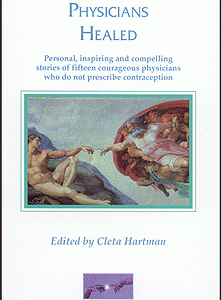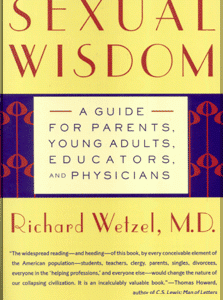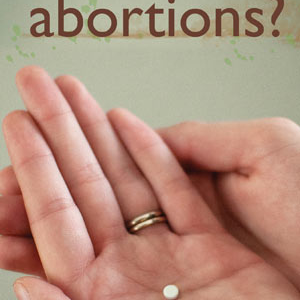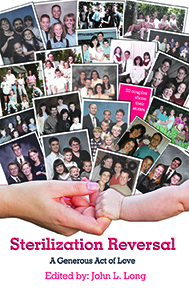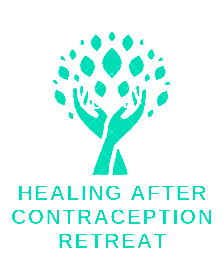by Peter Baklinski,
QUEBEC, April 3, 2013 (LifeSiteNews.com) – The pill may have promised women the world, but many women are discovering that blood clots, stroke, paralysis, and even death are a price too high to pay for the holy grail called sexual liberation.
This is true for 32-year-old Marie-Claude Lemieux of Quebec.
Three years ago Marie-Claude began taking the contraceptive pill Tri-Cyclen, manufactured by Toronto-based drug company Janssen.
Tri-Cyclen, like all oral contraceptives, contains synthetic versions (norgestimate and ethinyl estradiol) of two female sex hormones – estrogen and progestin.
According to the manufacturer, Tri-Cyclen inhibits the woman’s ovaries from releasing eggs. It also thickens her cervical mucus to immobilize sperm so they cannot reach an egg to fertilize it. If fertilization occurs despite these measures, the pill hardens the woman’s uterine wall to prevent implantation of a newly conceived human life.
Marie-Claude had taken Tri-Cyclen for six months when she one day unexpectedly suffered a stroke that left her completely paralyzed, save for the ability to move her left eyelid. Doctors blamed the stroke on the contraceptive pill since Marie-Claude was not overweight, did not smoke, and had no family history of stroke.
Last week, Marie-Claude was able to communicate to a reporter from La Presse that before going on Tri-Cyclen, neither her doctor or pharmacist told her the risk factors involved in taking the contraceptive pill.
“Nobody mentioned the risk and I believed that since it was approved [for women’s use], it was not dangerous.”
“Let's say it has a nasty side effect,” she said.
While Marie-Claude has gained some use of her finger, which allows her to communicate on an electronic device using a special program, doctors believe that she will remain severely disabled for life.
Many women are shocked to learn the manufacturer’s small print of the risks involved in taking the pill.
Janssen states on its website that Tri-Cyclen’s risks include:
1. Circulatory disorders including “blood clots in legs, lungs, heart, eyes or brain.” Janssen states clearly that blood clots are the “most common serious side effects of birth control pills. Clots can occur in many areas of the body.”
2. Breast cancer. Janssen warns that “women who use birth control pills may be at increased risk of developing breast cancer before menopause,” adding that these women “may be long-term users of birth control pills (more than eight years) or women who start using birth control pills at an early age.”
3. Cervical cancer. Janssen warns that “some studies have found an increase of cancer of the cervix in women who use hormonal contraceptives”.
4. Gallbladder disease. Janssen warns that “users of birth control pills have a greater risk of developing gallbladder disease”.
5. Liver tumours. Janssen warns that the “short and long-term use of birth control pills also has been linked with the growth of liver tumours.”
But Marie-Claude is only one of numerous women who have experienced negative side-effects from using the pill – ranging from the minor to the fatal.
A discussion board on Topix has over 200 entries from women sharing their horror stories of using Tri-Cyclen related pills. Some mothers have had their teenage daughters die from using the pill. Some women have had close brushes with death. Others have become incapacitated for life. Many are hoping for a class action lawsuit against the manufacturer.
One mother from California wrote of her teenage daughter: “My precious Baby girl died June 25, 2009 from using Ortho TriCyclene Lo. I agree whole heartedly with you [that] the company should be held responsible for the children that are dead because of this drug. Believe me we will have our say soon, and although no amount of money will bring our precious little girls back, their deaths will not have been in vain.”
A mother from Montana wrote: “My daughter almost died 2-1/2 years ago after taking these pills for about 6 weeks. After a week in the ICU, a clot buster procedure, and 4 titanium stents in her iliac, she took coumadin for 8 months.”
Another mother wrote: My 21 year old girl died 28 days after taking this deadly drug! She was going to get married in Nov, and died in Oct, 2008) 28-days after starting the birth control pill. I don't care how many warnings are on the information packet, this company should be forced to re-design this drug or take it off of the market.”
A woman named Jaime wrote: “I was on Ortho Tri-Cyclen in 2001 when I ended up with a transverse sinus thrombosis, which is a clot in my brain. My neurologist left me on the birth control pills and 6 months later I got a PE, pulmonary embolism, which is a clot in your lungs. I am lucky to be alive with both of these. The doctor from the PE immediately pulled me off of the birth control. I have been and will continue to be on blood thinners my whole life.”
According to La Presse, approximately 90,000 Quebec women were on the pill last year. No one knows how many women have suffered from using it since doctors are not required to report adverse effects.
Women who have suffered using Tri-Cyclen are discovering that there is no recourse to legal action against the manufacturer since the manufacturer clearly states the risks associated with using the product.
Marie-Claude’s husband Frederic Boulianne told La Presse that he would be willing to join a class action suit against the makers of Tri-Cyclen. He compared using the pill to playing “Russian Roulette.”
Andrea Mrozek, founder of ProWomanProLife.org, told LifeSiteNews.com that her heart goes out to women suffering from the pill.
“I remember reading The Greatest Experiment ever Performed on Women by Barbara Seaman and wondering why this information isn't more commonplace. Women take the pill because it is easy to take and does the job. And yet, side effects do occur and an outcome like this isn't easy (or freeing) in the end, at all.”
Mrozek pointed out that there are safe methods of postponing pregnancy that are just as effective as the pill but are 100 percent natural. These include the Billings ovulation method, the Creighton Model FertilityCare System, and the symptothermal method.
“I’m convinced if more women knew and understood what these other methods are, they would use them instead,” she said.
